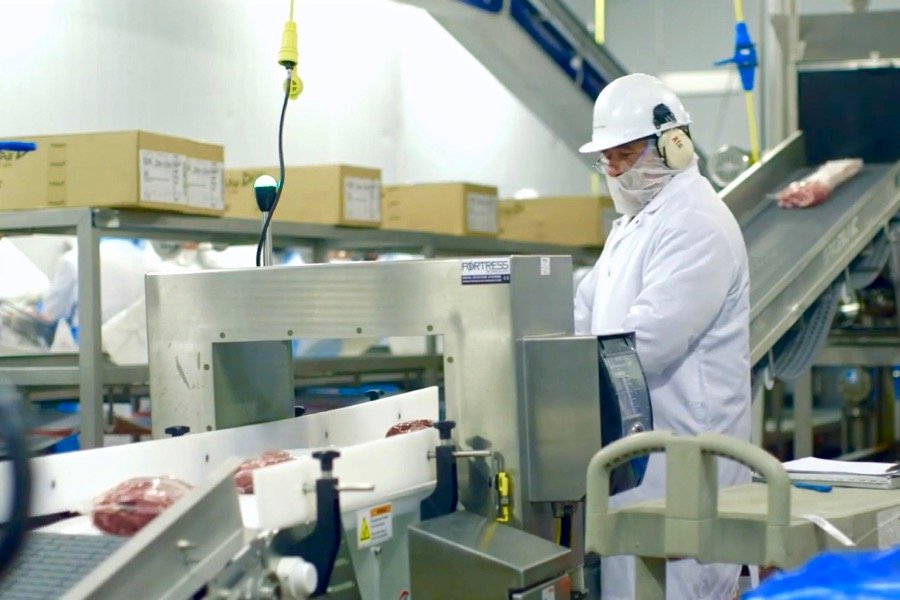Officials with Ontario farm groups plan to “discuss next steps” following the dismissal of charges against an animal welfare activist who gave drinks to hogs aboard a livestock trailer.
Justice David Harris of the Ontario Court of Justice on Thursday dismissed a charge of criminal mischief against Anita Krajnc of the self-described “grassroots, animal rights, vegan” group Toronto Pig Save, stemming from a June 2015 incident in Burlington, Ont.
The charge alleged interference with farm animals in transit, as Krajnc gave what she said was water from a bottle to pigs through the vents in the walls of a livestock trailer stopped at a red light en route to the Fearmans Pork slaughter plant at Burlington.
Read Also

B.C. ostriches culled, CFIA confirms
Ostriches on an embattled Edgewood, B.C. farm have been culled after a prolonged legal battle, the Canadian Food Inspection Agency has confirmed.
Four Ontario farm groups, in a joint release, said Thursday they’re “extremely disappointed with the decision and are concerned that activists will be encouraged to engage in escalating activities that are a growing threat to animal welfare, food security and human safety.”
“This is frustrating for Ontario pork producers, who adhere to federal regulations and high standards of animal care, and are constantly evolving to further enhance their commitment to healthy animals and communities,” Ontario Pork chairman Eric Schwindt said in the same release.
“Our concern in this instance was specific to the safety of food and people,” he added.
“Actions by Krajnc and activists like her should not be condoned by the courts as they threaten acceptable and legal farming practices and are a threat to food safety,” Bruce Kelly, program manager with Farm + Food Care Ontario, said in the same release.
The four groups, also including the Ontario Federation of Agriculture and Christian Farmers Federation of Ontario, said in a separate statement Wednesday they “support the right to peaceful protest, but not to interfere with farm animals.”
Asked Thursday about the possibility of an appeal, an Ontario Pork spokesperson noted the group attended Krajnc’s trial as an observer and wouldn’t be directly involved if an appeal is considered.
“Not satisfied”
In his ruling Thursday, which followed hearings held last summer and fall, Harris said he’s “not satisfied beyond a reasonable doubt” that Krajnc “interfered with the lawful use, enjoyment or operation” of the hogs or the business that owned them — as per the legal definition of mischief.
Harris rejected defense assertions that the hogs were “persons” rather than “property,” ruling that while Krajnc or others may believe so, “that does not, however, make it so.”
The judge also rejected defense claims that the pigs, being shipped from Van Boekel Hog Farms, weren’t being transported in compliance with governing regulations. The judge declared “any use of the property in this case was lawful.”
However, considering the Crown’s case that Krajnc gave the hogs an “unknown substance/possible contaminant,” Harris said “that theory breaks down when one looks at the evidence.”
Harris said there was no evidence that Krajnc gave the pigs an unknown substance, only evidence from Krajnc that she gave them water.
Harris rejected the trucker’s testimony that he “did not know what (Krajnc) had given to the pigs,” noting the driver “did not turn around and drive the truckload of ‘contaminated’ pigs back to the farm” but rather “straight to the slaughterhouse.”
Once at the Fearmans plant, the driver didn’t tell anyone the pigs might have been contaminated — not because he meant to sneak contaminated pigs in for slaughter, but “because he believed Ms. Krajnc had given them water, just like she and other protesters had done before,” the judge said.
Furthermore, Harris said, Fearmans “did not refuse to accept the truckload of pigs” and “had never refused” previous loads of hogs after protesters gave them water.
“As far as I know, every pig on that truck went on to be slaughtered and processed and passed on to consumers in the usual fashion,” the judge said, also noting “no evidence” that Krajnc had wilfully intended to cause Fearmans to reject the load of hogs in question.
However, Harris also rejected defense claims of legal justification for Krajnc’s actions, saying that if she had broken the law, she “did not act with legal justification or colour of right.”
If she meant to save a pig’s life, her actions “failed to accomplish that,” he said, and if she meant to provide “temporary relief to a pig,” all the hogs would have been given water a few minutes later at the packing plant.
Also, Harris said, if Krajnc had meant just to raise public awareness, she “did not need to break the law to do so.”
The judge also noted the irony that Krajnc’s actions “failed to increase public awareness until she was charged with this offence.” — AGCanada.com Network













